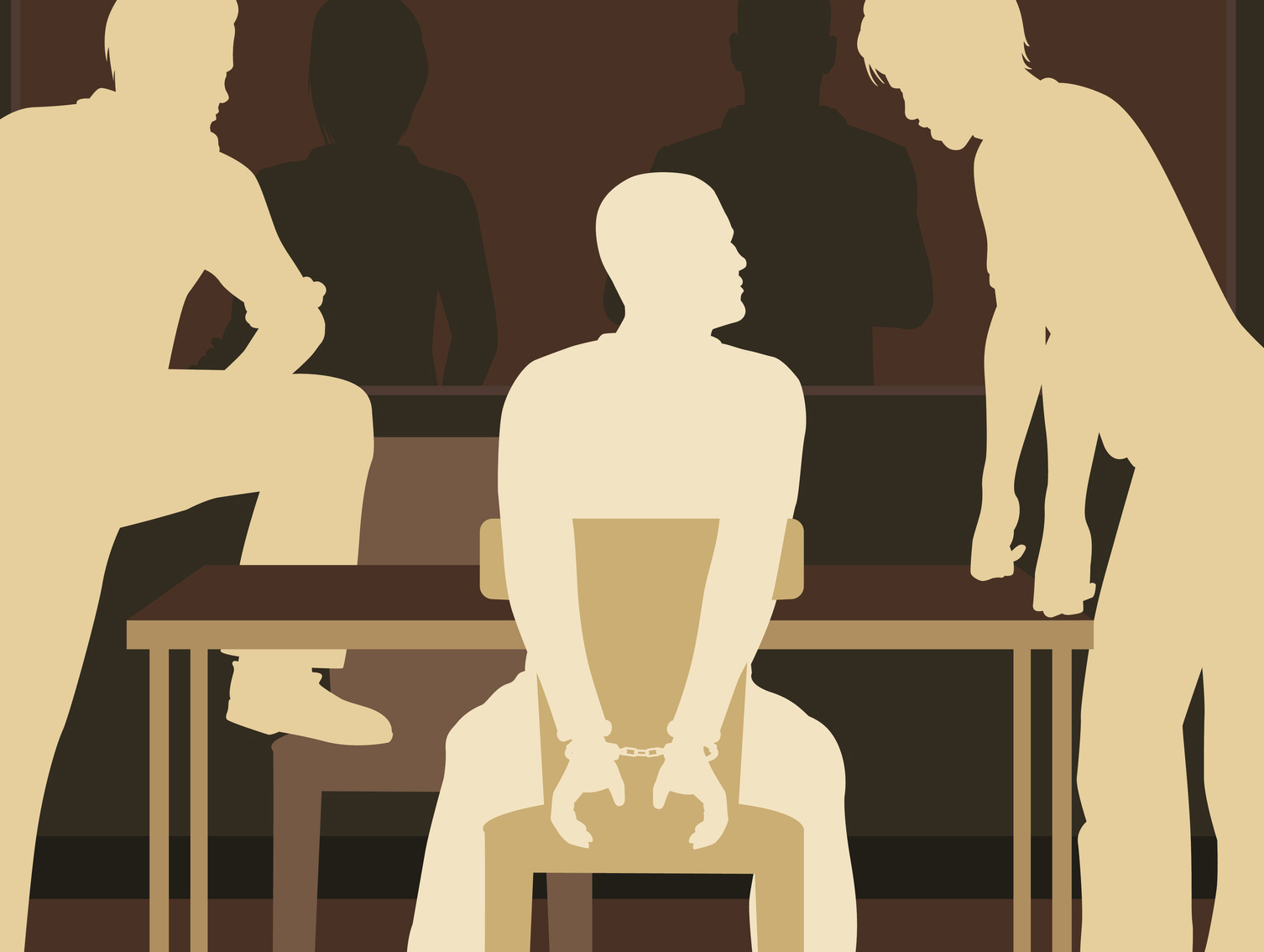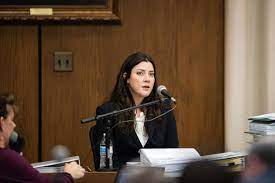News
Youth and confessions: Wilder School interrogation expert aids defense in acquitting juvenile suspect of murder

Hayley Cleary, a professor of criminal justice and public policy with a Ph.D. in developmental psychology, focusing on justice system-involved youth, recently served as an expert witness for the defense in the murder case acquittal of Terrell Jones.
Jones, who was 16 at the time he was initially implicated in the homicide, was found not guilty of first degree murder in the 2009 shooting death of Andrew Graham in Centennial, Colo. Alongside a lack of physical evidence, Cleary’s testimony played a crucial role in securing Jones’ freedom. She challenged assumptions regarding adolescent development and vulnerability to police manipulation and coercion. Additionally, Cleary discussed the developmental science of youth decision-making in stressful contexts. She testified, among other things, that youths’ developmental immaturity makes them more susceptible to agreeing with interrogators’ versions of events in order to alleviate discomfort.
We spoke with Cleary to learn more about her role and the significance of this case.
Q: How were you selected by the defense to testify?
The defense attorneys suspected that multiple young people in this case had provided false information to police and had falsely implicated their client. They started looking for an expert in juvenile interrogations and confessions, and several folks gave them my name. We had an initial conversation about whether my expertise would be relevant to their case and what my trial testimony might look like. I served as a "teaching witness," which means I did not review case information but rather shared with the court the research on youths' vulnerability to coercive interrogations.
Q: What was the most significant angle of the outcome of this case, especially considering Jones' age at the time of the shooting?
I was so impressed by the jurors' engagement during my testimony, and from what I've heard, throughout the entire trial. They really leaned into the content I provided. Interestingly, Colorado permits juries to ask questions of expert witnesses. Jurors would write down their questions during my testimony, and after the attorneys finished their direct and cross examinations, the judge read each question to me aloud and I answered them. The jurors asked really terrific questions – very much like students in my classes! – and it was a great way to deepen their understanding of the evidence provided in the case.
Q: Did the ethnicity of the defendants play a role in the case?
It's difficult to say. Implicit bias is so pervasive in the criminal legal system and in American society in general. We know there is an unfair, inaccurate stereotype that associates Black people with criminal behavior. And despite mountains of scholarship to the contrary, there still exists a myth of young Black males as "superpredators" who attack without remorse. These stereotypes and myths are harmful and pervasive, and they do play a role in jury decision making in general.
"According to the defense attorneys, investigators used numerous interrogation techniques that researchers consider problematic because they increase the risk of false statements, especially from young people. I discussed the research on those techniques with the jury." – Hayley Cleary
Photo Credit: Winston-Salem Journal
Q: You have served as an expert witness on the ethics of juvenile interrogations. What role did Jones' interrogations by police play in the case? Did you see any evidence of coercive interrogations by law enforcement with Jones? Additionally, how do prosecuting attorneys review the credibility of juvenile interrogations?
My role in this particular case was to educate the jury about research on youth in confessions, so I did not review the discovery. However, the (many) interrogations that occurred in this case were described at trial, and the jury watched clips of the filmed interrogations. Police interviewed several young people in connection with this crime, most of them multiple times. According to the defense attorneys, investigators used numerous interrogation techniques that researchers consider problematic because they increase the risk of false statements, especially from young people. I discussed the research on those techniques with the jury.
As for prosecutors, as far as we can tell, they are subject to the same misconceptions about juvenile confessions that police, judges, parents, and everyone else believes - namely, that confessions are always true because no one would confess to a crime that they didn't actually commit! The idea that someone would falsely confess to a heinous crime like murder is certainly hard to wrap your head around. But we know that false confessions do happen - probably a lot more often than we even know about. Well trained police and prosecutors know that the strongest cases are those in which confessions are elicited using non-confrontational interrogation strategies and are corroborated by reliable, independent evidence.
Q: Related to witness testimony, do you see age as a factor in evaluating a defendant's credibility? (in the sense they are perceived as unreliable based on their maturity level, life experiences, judgment and understanding of the situation, etc.)
Studies show that sometimes juries (or jury-eligible research participants) do account for developmental immaturity in their deliberations and verdicts. However, research also shows that they don't understand the extent to which that immaturity affects youths' decision making and behavior in stressful situations like a custodial interrogation. Plus, the general public perceives BIPOC as older and more violent than White youth - stereotypes that can play out in extraordinarily harmful ways for young Black defendants.
Q: How do your expert witness testimonies influence the learning environment in your classes? Do you see your experiences as enhancing their perspectives?
I love sharing my expert witness experiences with students, and they love hearing about the process. Like me, our students in the Wilder School are passionate about using research to inform practices and policies in the criminal legal system. We discuss how I prepare for cases, how I translate large bodies of scholarship into understandable concepts for legal decision makers, and how those decision makers use - or don’t use - that information in their deliberations. Students are hungry for real-world applications of what they learn in the classroom. Discussing the intersection of research and actual practice in the criminal legal system is an incredibly powerful form of experiential learning.
Q: What drives your passions for juvenile justice?
It's very personally meaningful to me to do expert witness work, even though it's quite stressful, because it's an opportunity to share one's training and experience in a very tangible way. I absolutely love being a researcher; I literally wake up each morning thinking about the projects I'm working on and the research questions I'm addressing (odd, I know!). That work culminates in scholarly products like journal articles, books, and lectures - all very important mechanisms for disseminating science.
As much as I love the science, I really love being able to share the science with others - whether that's a jury, a judge, legislators, attorneys, parents or students. Criminal cases with disputed confessions are really serious matters, and people's lives are at stake. I consider it such a privilege to be invited to share my expertise with the people who are charged with making such important decisions in those matters.
